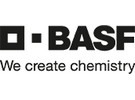BASF expands its offering for sustainable food production: Its certified compostable biopolymer ecovio® can now also be used to manufacture black twines to grow annual fruit and vegetables in commercial greenhouses. The grade ecovio® T 2206 is certified industrial compostable according to EN13432. This means that after harvesting the twines can be collected together with the plant residues and transported to industrial composting facilities (depending on local regulations) where they biodegrade. With this new end-of-life option for twines, persistent microplastics in organic waste can be avoided while at the same time more green waste can be turned into valuable compost. The industrial compostable ecovio® thus supports organic recycling and helps to close the nutrient loop to achieve a circular economy.
Twines made of ecovio® T 2206 can be used to help creepers like tomatoes and cucumbers to climb upwards in greenhouse structures in many climates from Europe, South America to Asia and Canada: Tests show the twines' excellent performance until the end of the crop cycle. After harvesting farmers do not have to laboriously separate the twines from the plants but simply collect them together for composting. The certified industrial compostable twines benefit both farmers and manufacturers: ecovio® T 2206 can be produced on standard polypropylene (PP) machinery for twines.

More BASF biopolymers for agricultural applications
BASF's biopolymers portfolio for sustainable agriculture and food production also includes the certified soil-biodegradable grade ecovio® M 2351 (according to EN 17033). It was specially developed for mulch films used in agriculture and horticulture to increase the yield, speed up harvesting as well as save water and herbicides. Mulch films made of ecovio® M 2351 are completely and biologically degraded by microorganisms like bacteria and fungi that exist naturally in the soil. Farmers can simply plow the mulch films made of ecovio® M 2351 back into the ground after harvest. This saves time and money and helps avoid persistent microplastics in agricultural soil which would occur if farmers used conventional mulch films made of non-biodegradable polyethylene (PE).
BASF's biopolymers enable organic recycling
BASF's biopolymer ecovio® is certified compostable per standards such as EN13432. It is a blend of BASF's PBAT ecoflex® and renewable raw materials. Typical applications for ecovio® are organic waste bags, cling film, fruit and vegetable bags, as well as agricultural mulch films and food packaging applications. Studies show the advantages of ecovio® for the production, packaging, and shelf life of food as well as for the collection of food waste. These advantages are based on the material's certified biodegradability in industrial and home composting as well as in agricultural soil: Food waste is reduced, nutrients are returned to the soil through greater volumes of compost – and the accumulation of persistent microplastics in agricultural soil is avoided. This contributes to a circular economy by closing the nutrient cycle via organics recycling.
For more information: BASF
BASF
basf.com
